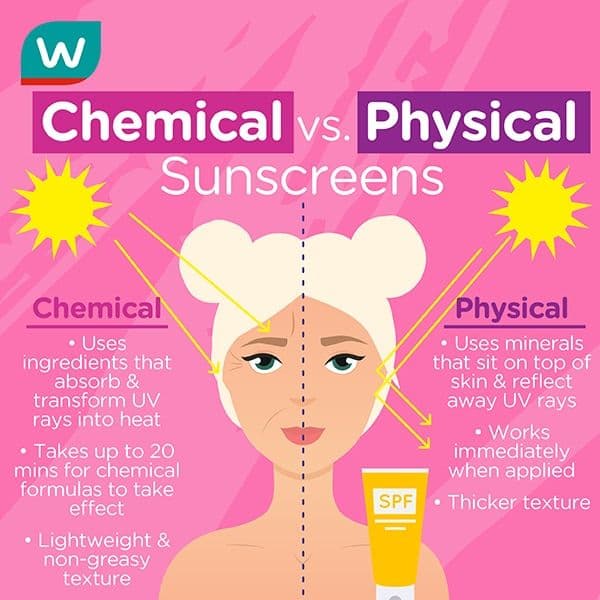

When it comes to sun protection, the debate between physical (mineral) and chemical sunscreens is ongoing. Reddit users across various skincare communities have shared their experiences and preferences, providing valuable insights into the differences between these two types of sunscreens.
Physical (Mineral) Sunscreens
These contain active ingredients like zinc oxide or titanium dioxide that sit on the skin's surface, reflecting UV rays. They're often recommended for sensitive skin due to their gentle nature.
"Mineral sunscreens are a physical barrier between your skin and the sun. Chemical sunscreens are a chemical layer which help protect against the sun via chemical reactions. I definitely prefer mineral sunscreens because they work better for my sensitive skin."
— u/cardioverttheliving, r/30PlusSkinCare
Chemical Sunscreens
These absorb UV radiation and convert it into heat, using ingredients like avobenzone or oxybenzone. They're known for their lightweight feel and lack of white residue.
"Chemical all the way. Physical ones make my skin dry and flaky, and the whitecast is just horrible. Plus chemical sunscreens usually offer better protection, all while having a lightweight texture."
— u/[deleted], r/SkincareAddiction
Reddit users have shared their experiences and preferences regarding physical and chemical sunscreens:
"I prefer chemical formulas because they're often lighter and don't leave a cast. It's also hard to find a good physical formula that doesn't feel 'pasty.'"
— u/coppyfloppy, r/SkincareAddiction
"I am allergic to this world and physical is the only one that doesn't kill my eyes or skin."
— u/[deleted], r/SkincareAddiction
"I feel like I’m the opposite. The more potent the mineral content, the more it burns. I’m hoping that chemical will be a game changer for me."
— u/Same_Athlete7030, r/SkincareAddiction
"Chemical sunscreens seem to be the ones that have the highest UVA ratings. So those ones."
— u/[deleted], r/SkincareAddiction
"I prefer physical because they don’t sting my eyes as much as chemical filters do, but it’s hard to find formulations of physical sunscreens that sit nicely and aren’t super heavy or greasy."
— u/r_eeeeeeeeeee, r/SkincareAddiction
Regardless of the type, proper application is key:
"Both chemical and mineral sunscreens sit on top of skin and protect from UV damage in basically the same way. Mineral sunscreen are just a lot more noticeable in terms of the white cast and heavy feelings."
— u/RelatableMolaMola, r/AsianBeauty
First of all, make sure you start with something and make sure you use it consistently. They always say 'the best sunscreen is the one you use consistently'.
After that, then iterate and try > Choosing between physical and chemical sunscreens depends on individual skin type, preferences, and specific needs. Both offer effective protection when used correctly, and you'll figure out what works best for you.
Also if you haven't, check out the best reddit-ranked sunscreens and mineral sunscreens on our site.
Top sunscreen choices include:
Top mineral sunscreen choices include:
Stingy eyes or reactive skin? Start with mineral (zinc/titanium). No issues and want sheer? Consider chemical.
Daily target SPF 30+ broad-spectrum; go SPF 50 for long outdoor days. Prefer products that state high UVA/PA ratings where available.
Hate white cast/heavy feel? Choose lightweight chemical gels/milks. Prefer matte or tinted coverage? Try tinted mineral.
Apply to half face/neck for a day. Check eye sting, pilling under makeup, and cast in daylight photos.
Use the two-finger rule for face/neck (≈2 mg/cm² in lab testing). Cover ears, hairline, and around eyes.
Every ~2 hours outdoors or after swimming/sweating. Use a stick, cushion, or mist over makeup if needed.